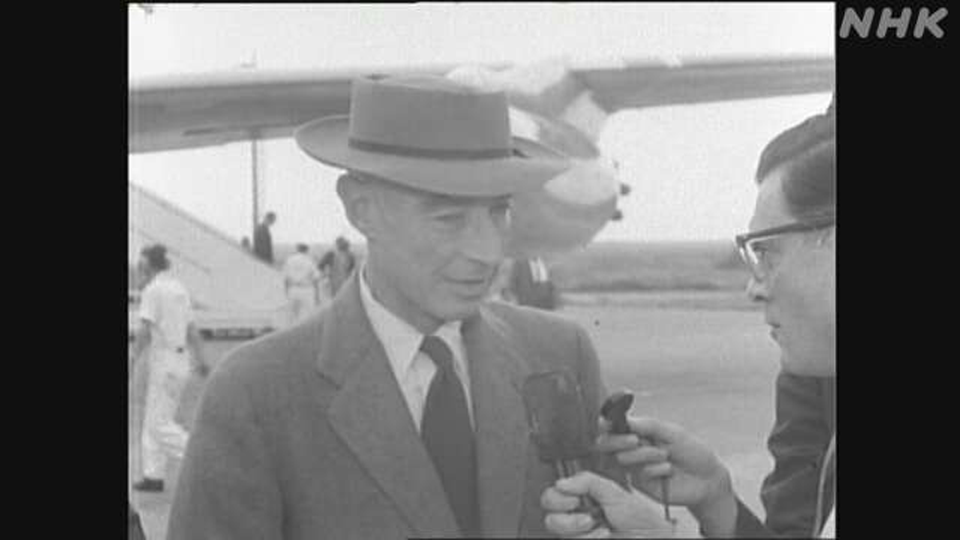Charles Oppenheimer addressed the Japan National Press Club in Tokyo on June 3. He urged people to heed his grandfather's call for global unity and cooperation, as the world now faces "a newer phase of more danger than ever before and escalating tensions between the superpowers."
He cited the growing tensions between the US, China and Russia, calling them "the biggest danger in the world if we can't increase communication at least and cooperation between those countries."
He said that Japan's experience "shows the world that we should never use the bombs again." He said he is opposed to the use of any kind of bomb. "I personally believe all bombs are immoral, not just atomic bombs. They should never be used by humanity." He stressed that people should "use the same science and technology to save the world instead of to destroy it."

Robert Oppenheimer, widely known as the "father of the atomic bomb," was director of the Los Alamos Laboratory, where he oversaw the Manhattan Project -- the US plan to develop an atomic bomb during World War Two.
The renowned theoretical physicist later became distressed when he learned of the devastation caused by the atomic bombings of Hiroshima and Nagasaki. After the war, Oppenheimer took a stand against the development of the hydrogen bomb, fearing that it would accelerate the nuclear arms race.

Charles Oppenheimer said that many Americans came to view his grandfather as an enemy because of his opposition to making hydrogen bombs.
He carried this "guilty mark for much of his life," his grandson said.
"What he believed in and said is that we need global unity and cooperation around the existential problems that we all face," he said. "We could have avoided the arms race and not been under the terrible danger that we are today from nuclear weapons."
Oppenheimer, who has been working to pursue nuclear non-proliferation in the US, touched on his recent visit to Hiroshima, something his grandfather was not able to do when he visited Japan in 1960.
"I feel grateful that I had the experience to be able to go there on a quiet trip and have one-on-one conversations with people," he said. "I know he wanted to do that but couldn't do it."
Robert Oppenheimer's Japan trip
Former NHK producer Usami Shozo, 89, interviewed the physicist during his Japan visit in September 1960.
"I wanted to ask his opinion on the fact that many citizens died because of the atomic bombings," Usami recalls.
"His answer was not very clear, but I remember him saying something like, it was unfortunate that many people died, but as a scientist, he had to devote himself to the development."
According to Usami, the interview he conducted at Haneda Airport was broadcast on the radio at the time, but the recording has since been lost.
NHK footage including Usami interviewing Robert Oppenheimer in Tokyo in 1960.
Award-winning film
The 2023 film "Oppenheimer," based on the physicist's life story, captured seven Oscars, including Best Picture and Best Director. The three-hour drama has drawn mixed reactions in Japan since its opening at the end of March.
Critics, including some in Hiroshima and Nagasaki, pointed out that the movie fails to convey the reality of the atomic bombing, as it does not include any depictions of the catastrophic damage to the two cities.
Before coming to Tokyo, Oppenheimer met with some atomic bomb survivors, or hibakusha in Hiroshima.
He said he believes that they understand the difference in the values of former US President Harry Truman, who authorized dropping the atomic bombs, and those of his grandfather.
"It's difficult to talk about these things but we need to," he said.
You may be interested in:
'Oppenheimer' draws praise, criticism in Japan
'Barbenheimer' atomic bomb jokes hit a sour note in Japan

